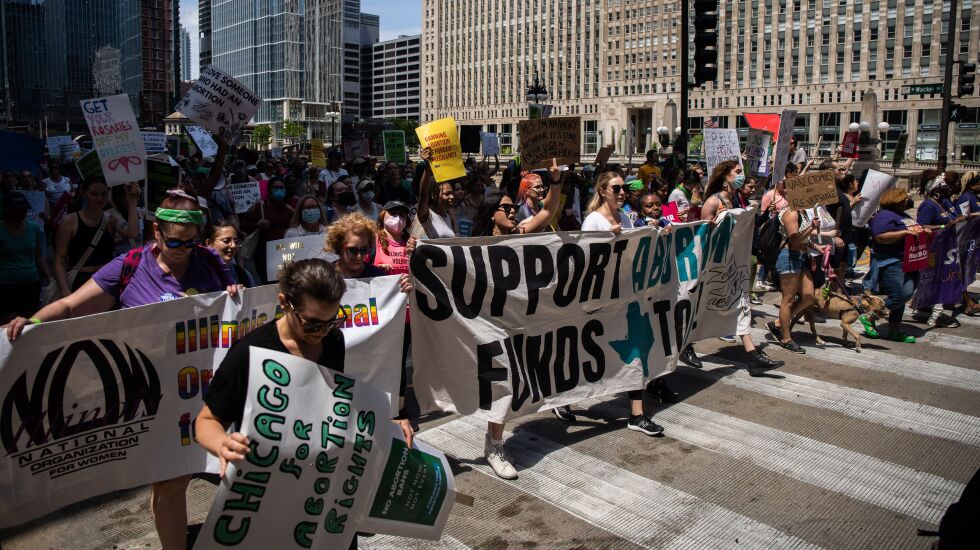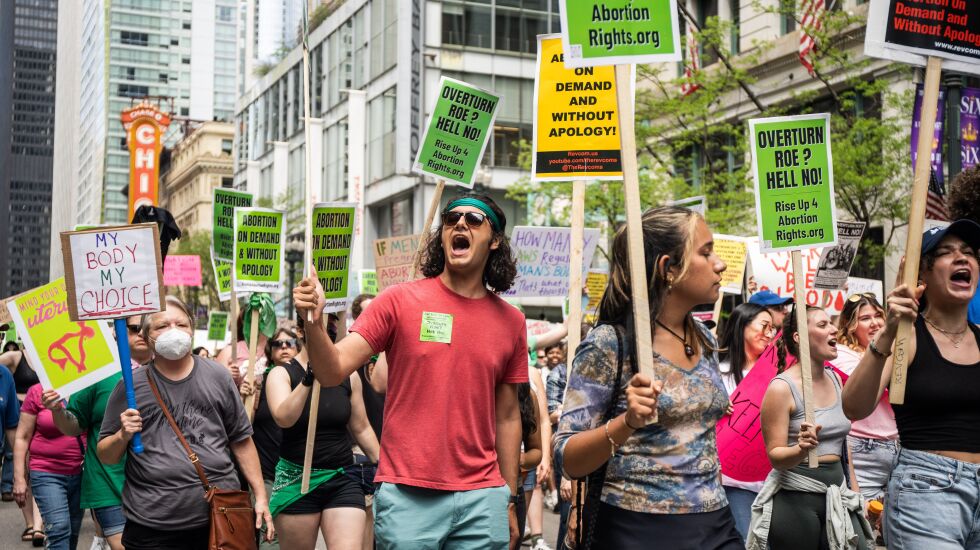
A City Council committee on Monday put teeth into a groundbreaking ordinance aimed at preventing out-of-state residents coming to Chicago for abortions or gender-affirming care outlawed in their home states from becoming targets of investigation.
Four months after the Bodily Autonomy Sanctuary City Ordinance passed the Council, the Committee on Health and Human Relations voted to empower Chicago’s Commission on Human Relations to “investigate and adjudicate complaints” of “discrimination and retaliation related to housing and job discrimination.”
“No one should experience discrimination or retaliation for decisions they make about their own bodies and health care needs — at home or in the workplace,” said Human Relations Commission Chair Nancy Andrade.
“We proudly support these efforts to protect those seeking reproductive health care and gender-affirming care in our city as well as the individuals and organizations providing the care. ... We will also collect information on when city departments or agencies receive requests from states with restrictive laws related to abortion or gender-affirming care.”
Alicia Hurtado of the Chicago Abortion Fund said the fund already has received “calls this year from over 7,000 people across 40 different states.” Support was offered to “100% of the people we reached,” but some barriers “are simply out of our control,” she said.
“Protecting them from discrimination for accessing basic health care can continue to shield them from abortion stigma after our paths have crossed,” Hurtado said.
“No one should be shamed or ostracized, should lose opportunities or income or face discrimination because they made a health care decision that was best for themselves, their bodies and their families.”
The Bodily Autonomy Sanctuary City Ordinance sailed through the City Council in late September at the behest of Ald. Rossana Rodriguez Sanchez (33rd) and her Progressive Caucus colleagues.
It prohibited the Chicago Police Department or any other agency of local government from cooperating in investigations that seek to criminalize women who come to Chicago seeking abortions and other reproductive care. It also shielded those seeking gender-affirming care in Chicago, medical providers who treat those patients and others who help those patients, such as by providing information, transportation and housing.
Mayor Lori Lightfoot had already signed an executive order enacting those same protections after the U.S. Supreme Court overturned Roe v. Wade. The ordinance gave Lightfoot’s executive order, more vulnerable to a legal challenge, the force of law.

Rodriguez Sanchez called Monday’s follow-up ordinance championed by Lightfoot a “great addition” to the protections passed last fall. Ald. Maria Hadden (49th) said it’s a “great example” of the City Council and the mayor’s office “working together and doing what we’re supposed to do.”
“This is just an example of why it’s important that we be an active and nimble legislative body. The world around us is changing — very quickly, it seems like,” Hadden said.
Retiring Ald. James Cappleman (46th) couldn’t help but reflect on how far Chicago has come, though it still has a long way to go.
“I still remember only a few years ago when members of the trans community couldn’t go to the bathroom. They were going outside. Just a simple piece of legislation that allowed them to go the bathroom of their choice was a huge move,” Cappleman said.
“We will continue to find other areas to protect the LGBTQ+ community and women. It just continues. And it’s sad. But, I’m glad that with my colleagues willing and ready to fight the fight.”







